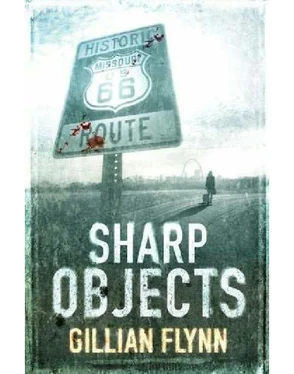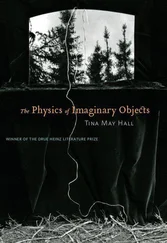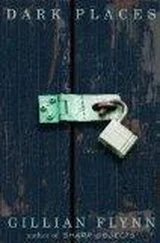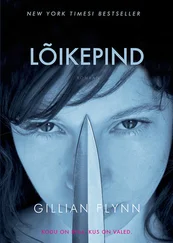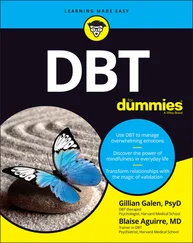Flynn, Gillian - Sharp_Objects
Здесь есть возможность читать онлайн «Flynn, Gillian - Sharp_Objects» весь текст электронной книги совершенно бесплатно (целиком полную версию без сокращений). В некоторых случаях можно слушать аудио, скачать через торрент в формате fb2 и присутствует краткое содержание. Жанр: Старинная литература, на русском языке. Описание произведения, (предисловие) а так же отзывы посетителей доступны на портале библиотеки ЛибКат.
- Название:Sharp_Objects
- Автор:
- Жанр:
- Год:неизвестен
- ISBN:нет данных
- Рейтинг книги:5 / 5. Голосов: 1
-
Избранное:Добавить в избранное
- Отзывы:
-
Ваша оценка:
- 100
- 1
- 2
- 3
- 4
- 5
Sharp_Objects: краткое содержание, описание и аннотация
Предлагаем к чтению аннотацию, описание, краткое содержание или предисловие (зависит от того, что написал сам автор книги «Sharp_Objects»). Если вы не нашли необходимую информацию о книге — напишите в комментариях, мы постараемся отыскать её.
Sharp_Objects — читать онлайн бесплатно полную книгу (весь текст) целиком
Ниже представлен текст книги, разбитый по страницам. Система сохранения места последней прочитанной страницы, позволяет с удобством читать онлайн бесплатно книгу «Sharp_Objects», без необходимости каждый раз заново искать на чём Вы остановились. Поставьте закладку, и сможете в любой момент перейти на страницу, на которой закончили чтение.
Интервал:
Закладка:
I was regretting using the word junk to describe abuse, rape, and murder. Disrespectful.
“Sounds like we’ve both seen some ugly things,” Richard said.
“Yes.” I twirled my drink, had nothing to say.
“I’m sorry.”
“Me too.”
He studied me. The bartender switched the house lights to low, an official signal of nighttime hours.
“We could catch a movie sometime.” He said it in a conciliatory tone, as if an evening at the local cineplex might make everything work out for me.
“Maybe.” I swallowed the rest of my drink. “Maybe.”
He peeled the label off the empty beer bottle next to him and smoothed it out onto the table. Messy. A sure sign he’d never worked in a bar.
“Well, Richard, thank you for the drink. I’ve got to get home.”
“It was nice talking with you, Camille. Can I walk you to your car?”
“No, I’m fine.”
“You okay to drive? I promise, I’m not being a cop.”
“I’m fine.”
“Okay. Have good dreams.”
“You too. Next time, I want something on record.”
Alan, Adora, and Amma were all gathered in the living room when I returned. The scene was startling, it was so much like the old days with Marian. Amma and my mother sat on the couch, my mother cradling Amma—in a woolen nightgown despite the heat—as she held an ice cube to her lips. My half sister stared up at me with blank contentment, then went back to playing with a glowing mahogany dinner table, exactly like the one in the next room, except that it was about four inches high.
“Nothing to worry about,” Alan said, looking up from a newspaper. “Amma’s just got the summer chills.”
I felt a shot of alarm, then annoyance: I was sinking back into old routines, about to run to the kitchen to heat some tea, just like I always did for Marian when she was sick. I was about to linger near my mother, waiting for her to put an arm around me, too. My mother and Amma said nothing. My mother didn’t even look up at me, just nuzzled Amma in closer to her, and cooed into her ear.
“We Crellins run a bit delicate,” Alan said somewhat guiltily. The doctors in Woodberry, in fact, probably saw a Crellin a week—both my mother and Alan were sincere overreactors when it came to their health. When I was a child, I remember my mother trying to prod me with ointments and oils, homemade remedies and homeopathic nonsense. I sometimes took the foul solutions, more often refused. Then Marian got sick, really sick, and Adora had more important things to do than coaxing me into swallowing wheat-germ extract. Now I had a pang: all those syrups and tablets she proffered, and I rejected. That was the last time I had her full attention as a mother. I suddenly wished I’d been easier.
The Crellins. Everyone here was a Crellin but me, I thought childishly.
“I’m sorry you’re sick, Amma,” I said.
“The pattern on the legs is wrong,” Amma whined abruptly. She held the table up to my mother, indignant.
“You’ve got such eyes, Amma,” Adora said, squinting at the miniature. “But it’s barely noticeable, baby. Only you will ever know.” She smoothed back Amma’s damp hairline.
“I can’t have it wrong,” Amma said, glaring at it. “We have to send it back. What’s the point of getting it special-made if it’s not right?”
“Darling, I promise you, you can’t even tell.” My mother patted Amma’s cheek, but she was already standing up.
“You said it would all be perfect. You promised!” Her voice wavered and tears started dripping down her face. “Now it’s ruined. The whole thing is ruined. It’s the dining room—it can’t have a table that doesn’t match. I hate it!”
“Amma…” Alan folded his paper and went to put his arms around her, but she wrenched away.
“This is all I want, it’s all I asked for, and you don’t even care that it’s wrong!” she was screaming through her tears now, a full-blown tantrum, her face mottled in anger.
“Amma, calm yourself,” Alan said coolly, trying to get a hold of her again.
“It’s all I want!” Amma yelped, and smashed the table on the floor, where it cracked into five shards. She hit it until it was in pieces, then buried her face in the sofa cushion and wailed.
“Well,” my mother said. “Looks like we’ll have to get a new one now.”
I retreated to my room, away from that horrible little girl, who was not like Marian at all. My body was heading into a flare. I paced a bit, tried to remember how to breathe right, how to calm my skin. But it blared at me. Sometimes my scars have a mind of their own.
Iam a cutter, you see. Also a snipper, a slicer, a carver, a jabber. I am a very special case. I have a purpose. My skin, you see, screams. It’s covered with words— cook, cupcake, kitty, curls —as if a knife-wielding first-grader learned to write on my flesh. I sometimes, but only sometimes, laugh. Getting out of the bath and seeing, out of the corner of my eye, down the side of a leg: baby-doll. Pulling on a sweater and, in a flash of my wrist: harmful. Why these words? Thousands of hours of therapy have yielded a few ideas from the good doctors. They are often feminine, in a Dick and Jane, pink vs. puppy dog tails sort of way. Or they’re flat-out negative. Number of synonyms for anxious carved in my skin: eleven. The one thing I know for sure is that at the time, it was crucial to see these letters on me, and not just see them, but feel them. Burning on my left hip: petticoat.
And near it, my first word, slashed on an anxious summer day at age thirteen: wicked. I woke up that morning, hot and bored, worried about the hours ahead. How do you keep safe when your whole day is as wide and empty as the sky? Anything could happen. I remember feeling that word, heavy and slightly sticky across my pubic bone. My mother’s steak knife. Cutting like a child along red imaginary lines. Cleaning myself. Digging in deeper. Cleaning myself. Pouring bleach over the knife and sneaking through the kitchen to return it. Wicked. Relief. The rest of the day, I spent ministering to my wound. Dig into the curves of W with an alcohol-soaked Q-tip. Pet my cheek until the sting went away. Lotion. Bandage. Repeat.
The problem started long before that, of course. Problems always start long before you really, really see them. I was nine and copying, with a thick polka-dotted pencil, the entire Little House on the Prairie series word by word into spiral notebooks with glowing green covers.
I was ten and writing every other word my teacher said on my jeans in blue ballpoint. I washed them, guiltily, secretly, in my bathroom sink with baby shampoo. The words smudged and blurred, left indigo hieroglyphics up and down the pant legs, as if a tiny ink-stained bird had hopped across them.
By eleven, I was compulsively writing down everything anyone said to me in a tiny blue notepad, a mini reporter already. Every phrase had to be captured on paper or it wasn’t real, it slipped away. I’d see the words hanging in midair—Camille, pass the milk—and anxiety coiled up in me as they began to fade, like jet exhaust. Writing them down, though, I had them. No worries that they’d become extinct. I was a lingual conservationist. I was the class freak, a tight, nervous eighth-grader frenziedly copying down phrases (“Mr. Feeney is totally gay,” “Jamie Dobson is ugly,” “They never have chocolate milk”) with a keenness bordering on the religious.
Marian died on my thirteenth birthday. I woke up, padded down the hall to say hello—always the first thing I did—and found her, eyes open, blanket pulled up to her chin. I remember not being that surprised. She’d been dying for as long as I could remember.
Читать дальшеИнтервал:
Закладка:
Похожие книги на «Sharp_Objects»
Представляем Вашему вниманию похожие книги на «Sharp_Objects» списком для выбора. Мы отобрали схожую по названию и смыслу литературу в надежде предоставить читателям больше вариантов отыскать новые, интересные, ещё непрочитанные произведения.
Обсуждение, отзывы о книге «Sharp_Objects» и просто собственные мнения читателей. Оставьте ваши комментарии, напишите, что Вы думаете о произведении, его смысле или главных героях. Укажите что конкретно понравилось, а что нет, и почему Вы так считаете.
